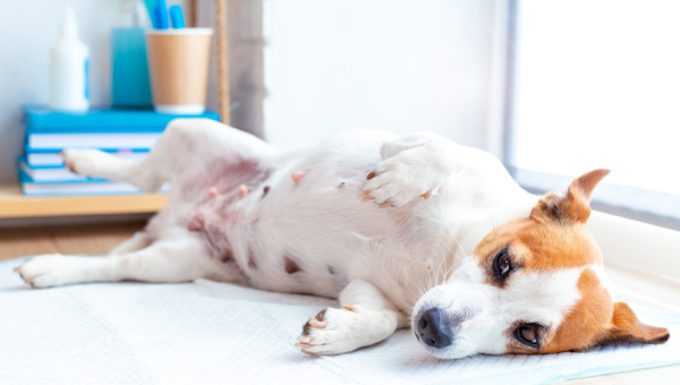Miscarriage in dogs happens when a fetus dies during pregnancy. Unfortunately, the condition can happen at any point of a dog’s pregnancy.
Generally, the condition can affect one or all of the puppies in a litter.
Technically, the condition is also known as spontaneous abortion and pregnancy loss in dogs.
If you see the signs of the condition in…









